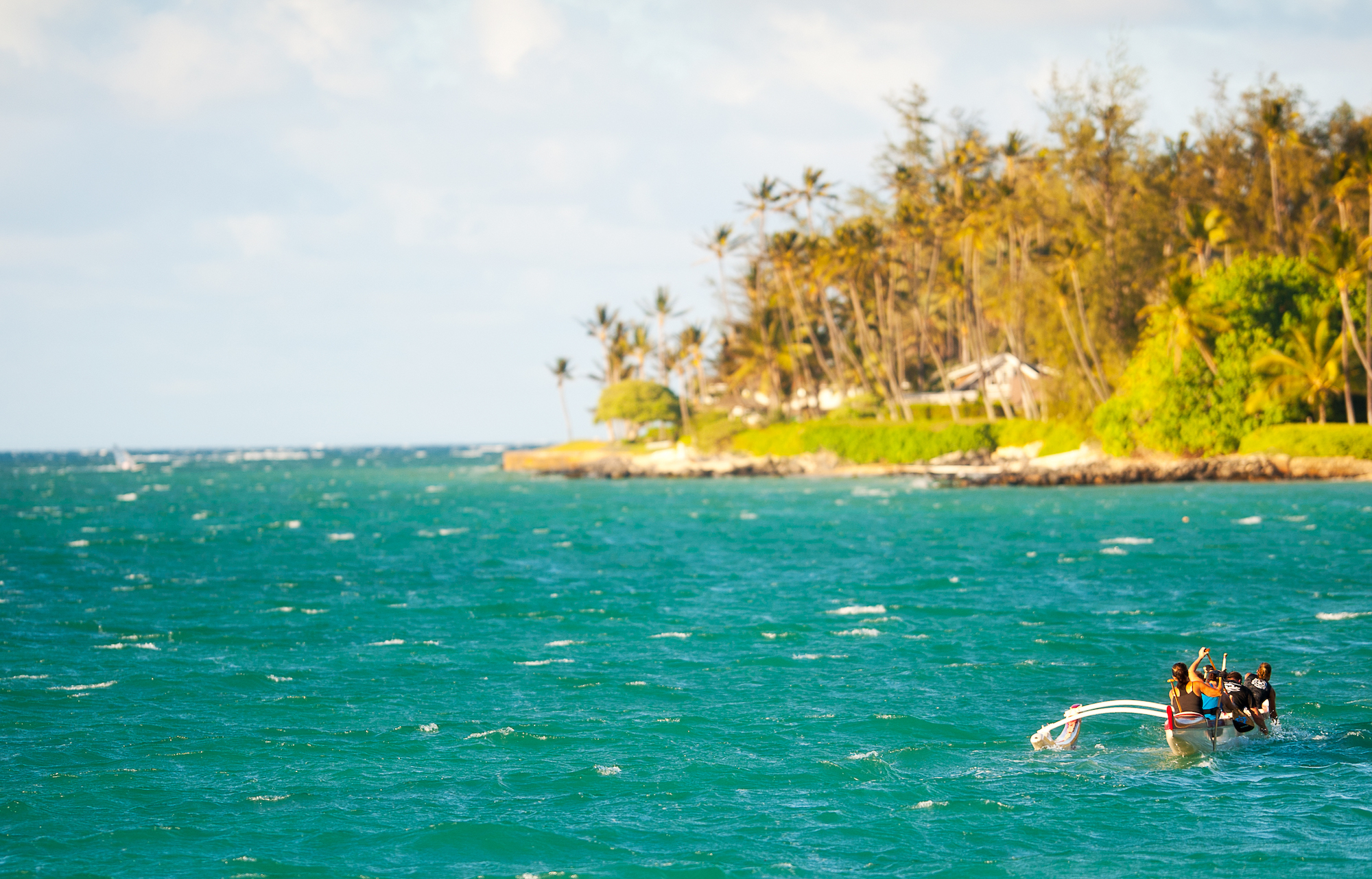10 Questions With Mike Despard, Broker-in-Charge in Kona, Hawai‘i Island
Mike Despard has recently assumed the position of Broker-in-Charge for Hawaiʻi Life on Hawai’i Island in Kona. After nine years with Hawai‘i Life, Mike’s appointment is being hailed as a well-deserved recognition of his leadership and deep industry expertise. With more than 30 years in real estate development, design, and construction, Mike has a wealth of knowledge and experience to offer brokers, buyers and sellers alike.
To gain a better understanding of Hawai‘i’s current real estate landscape, here are 10 questions we asked Mike to share his thoughts on:
1. Given your architectural degree from Iowa State University and 30 years spanning real estate development, design, and construction, how has this knowledge complemented your real estate work in Hawai‘i?
I think it’s a huge benefit to understand the product I’m selling – how it’s built, the level of work it takes to build it and a budget estimate for its cost. Also, I have learned that many buyers are not able to visualize what a property could be, so I enjoy helping them dream a bit. And for sellers, I understand what it will take to prepare a property for listing and whether or not it’s worth the effort.

2. How do you envision the future of the real estate market in West Hawai‘i and Hawai‘i Island overall?
With the largest landmass in the state, I believe we (Hawai‘i Island) have the most opportunity for growth and in most categories, offer the least expensive real estate. So I expect that the Big Island real estate market will grow at a pace that’s greater than the other islands.
3. Hawai‘i’s distinct cultural and natural landscape surely shapes its real estate market. From your perspective, how does the synergy between Hawai‘i’s heritage and its breathtaking landscapes influence the preferences and choices of buyers and sellers?
Bluntly speaking, Hawai‘i is not for everyone. Most people discover that on their own before they purchase, and others figure it out within a few years. And that’s okay. Hawai‘i offers a beautiful culture that many desire; it’s familiar because we are one of the states while simultaneously being foreign like it’s a different country. I believe Hawai‘i will always be a draw for many…not just Americans but the whole world. But the dream of living or owning a property in Hawai‘i sometimes gives way to practical aspects of life (cost of living, distance from family/friends, access to medical care). We are a transient population, which strongly influences the real estate market.
4. Both you and your wife, Kristi, are integral parts of Hawaiʻi Life. How does this shared professional journey influence your strategies or decisions?
Kristi and I have always worked as a team as parents and in many other areas of life, so working together in real estate is natural for us. We have discovered that many of our clients, especially sellers, appreciate a team approach, so we market ourselves that way. We tag team our responsibilities, including staging and showings.

5. Given the volatility and inconsistency in the types of properties being traded post-pandemic, how has this affected the strategy and advice you give to both buyers and sellers on Hawai‘i Island?
We are advising our buyers to purchase for the “long-haul,” not an immediate turnaround hoping to make a quick buck. For sellers, we are telling them that the market is rather unpredictable now and it can be difficult to know what will sell soon, but that a well-priced property is always a good strategy.
6. With the days on the market (DOM) trending upwards since August 2022, what opportunities or challenges does this present for both first-time and seasoned buyers?
With DOM trending upward, it’s an advantage for buyers. In many situations, there’s more room for negotiation when a seller has a property that’s been sitting on the market a long time. First-time buyers often need every bit of an advantage they can gain, so a seller should know what kind of credits at closing they can offer to help a buyer buy down their interest rate or apply toward buyer closing costs.
7. Based on the data, there’s anticipation of a new and higher floor, and a potential sale-to-list ratio decrease to around 90% for the Big Island. What are the key takeaways from this for potential sellers and how can they best position themselves in this evolving market?
It’s my experience that sellers are typically slower to pick up on market changes when the changes favor the buyers. With the recent rapid increase in prices during the pandemic, sellers are not as accepting of the latest market trends. So, when I meet with sellers, I typically tell them to lower their expectations and to expect their property to remain on market longer if they are unwilling to adjust. I also tell them that the number of buyers has decreased significantly in the last year, and that translates to fewer transactions overall, even though inventory remains relatively low.

8. Drawing from your rich career and personal experiences, can you share an anecdote or story that encapsulates the essence of what it means to be in real estate in Hawai‘i and the satisfaction it brings?
One of my favorite buyer stories involves a couple in Kailua Kona who had been renting for years. With the amazing work of a lender broker who worked through the challenges of their finances, I helped them purchase a home in 2019 so they could start building equity and wealth. When they moved into the property, it was one of only a handful of sales where I teared up seeing how much they appreciate what we do. I see them often in the community, and they still give me big hugs of gratitude.
9. With the aftermath of the pandemic reshaping industries, how has the Hawai‘i real estate market adjusted, and what long-term impacts or trends do you anticipate?
The biggest influence of the market, in my opinion, has been the dramatic increase in work-from-home employment. Before the pandemic, it was somewhat difficult for a person to work from home in Hawai‘i with their mainland-based employer. But now, it’s almost expected. So, long-term, I expect the average age of a non-local buyer to decrease. In other words, moving to Hawai‘i is not just for the retired or second-home buyers. And I expect my generation and younger to seek a quality of life in their mid-life years versus waiting until they retire to spend what they’ve earned.
10. The Q3 data for 2023 indicates a slowdown in sales but an expansion in the availability of single-family homes. From your perspective, what factors are contributing to this trend, and how do you foresee this impacting buyers and sellers in the near term?
Higher interest rates are certainly a major contribution to this trend, so most of the people selling and buying “need” to do so (new job, life situation, etc.). Sellers don’t want to give up their incredibly low interest rates to buy another home with a rate that’s double what they had. But I expect some buyers will accept the new normal, which if you look at the last 40 to 50 years, is basically an average rate for that period of time.
Mike’s love of Hawai‘i, passion for real estate, and not to mention his great sense of humor, made for a natural fit with Hawai‘i Life. Decades of experience in the industry and dedication to his clients have made him an incredibly valuable player in Hawai‘i Island real estate. Check out Mike’s page for additional information and the chance to connect.




Evelyn
January 19, 2025
Can you feature clients with bigger budgets? Everyone has a $250-$350 budget it seems. We all know home prices are a million or more. Can you feature more of the high end?